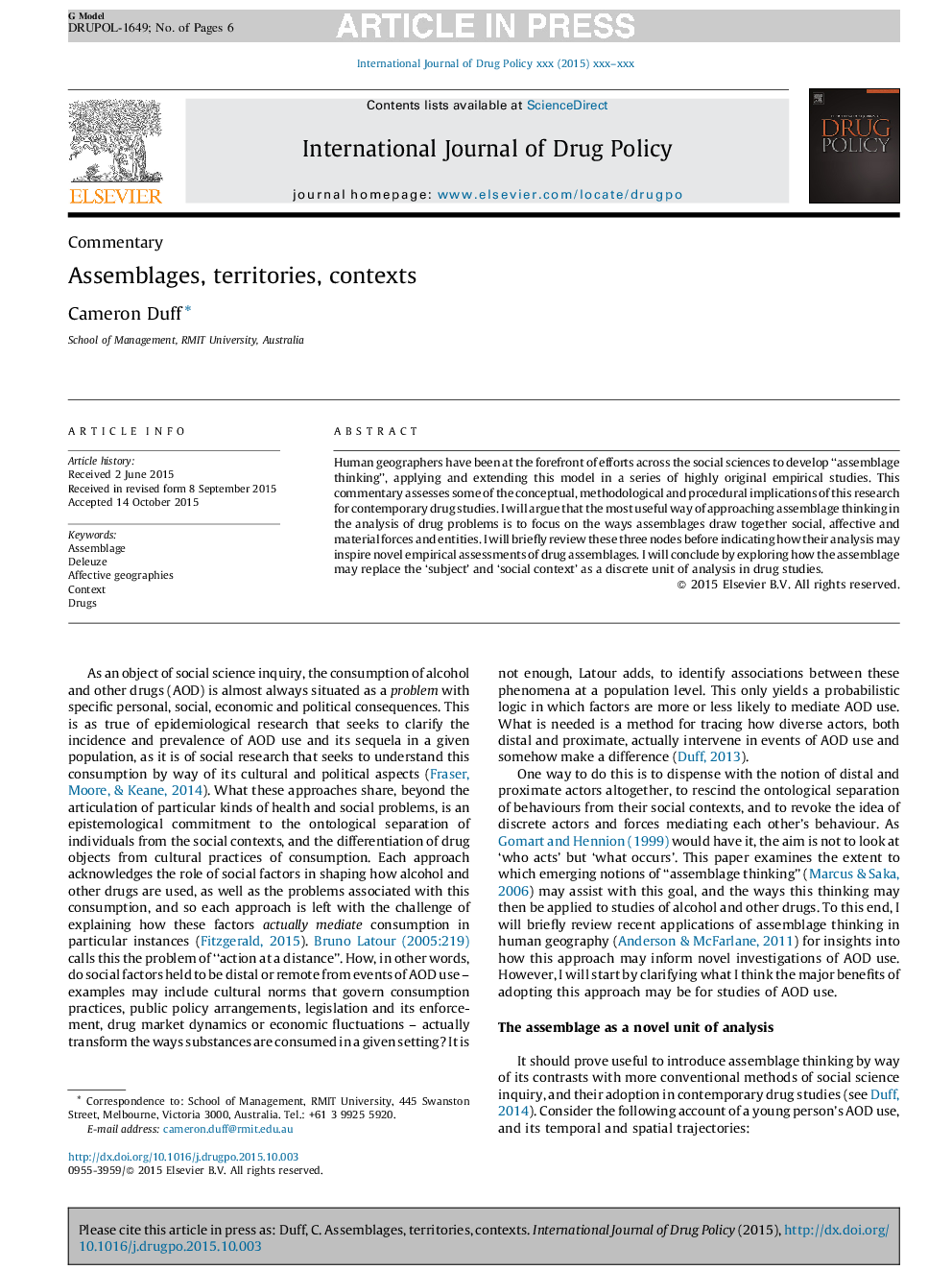| Article ID | Journal | Published Year | Pages | File Type |
|---|---|---|---|---|
| 7512659 | International Journal of Drug Policy | 2016 | 6 Pages |
Abstract
Human geographers have been at the forefront of efforts across the social sciences to develop “assemblage thinking”, applying and extending this model in a series of highly original empirical studies. This commentary assesses some of the conceptual, methodological and procedural implications of this research for contemporary drug studies. I will argue that the most useful way of approaching assemblage thinking in the analysis of drug problems is to focus on the ways assemblages draw together social, affective and material forces and entities. I will briefly review these three nodes before indicating how their analysis may inspire novel empirical assessments of drug assemblages. I will conclude by exploring how the assemblage may replace the 'subject' and 'social context' as a discrete unit of analysis in drug studies.
Keywords
Related Topics
Health Sciences
Medicine and Dentistry
Psychiatry and Mental Health
Authors
Cameron Duff,
